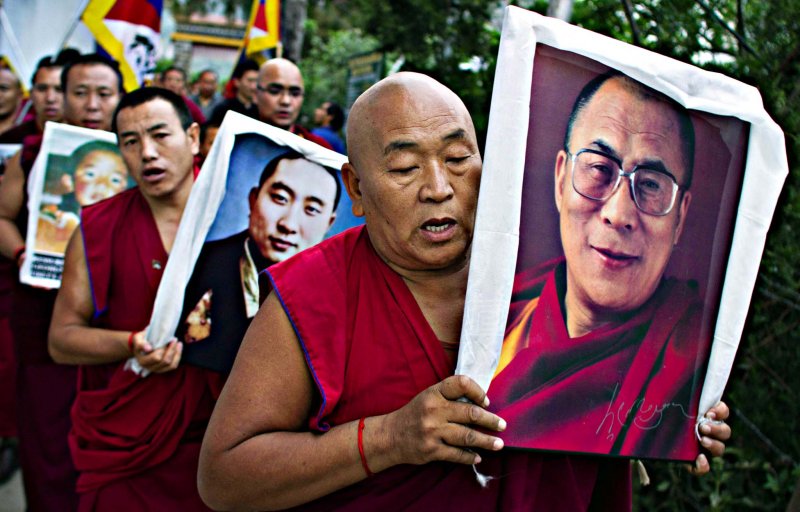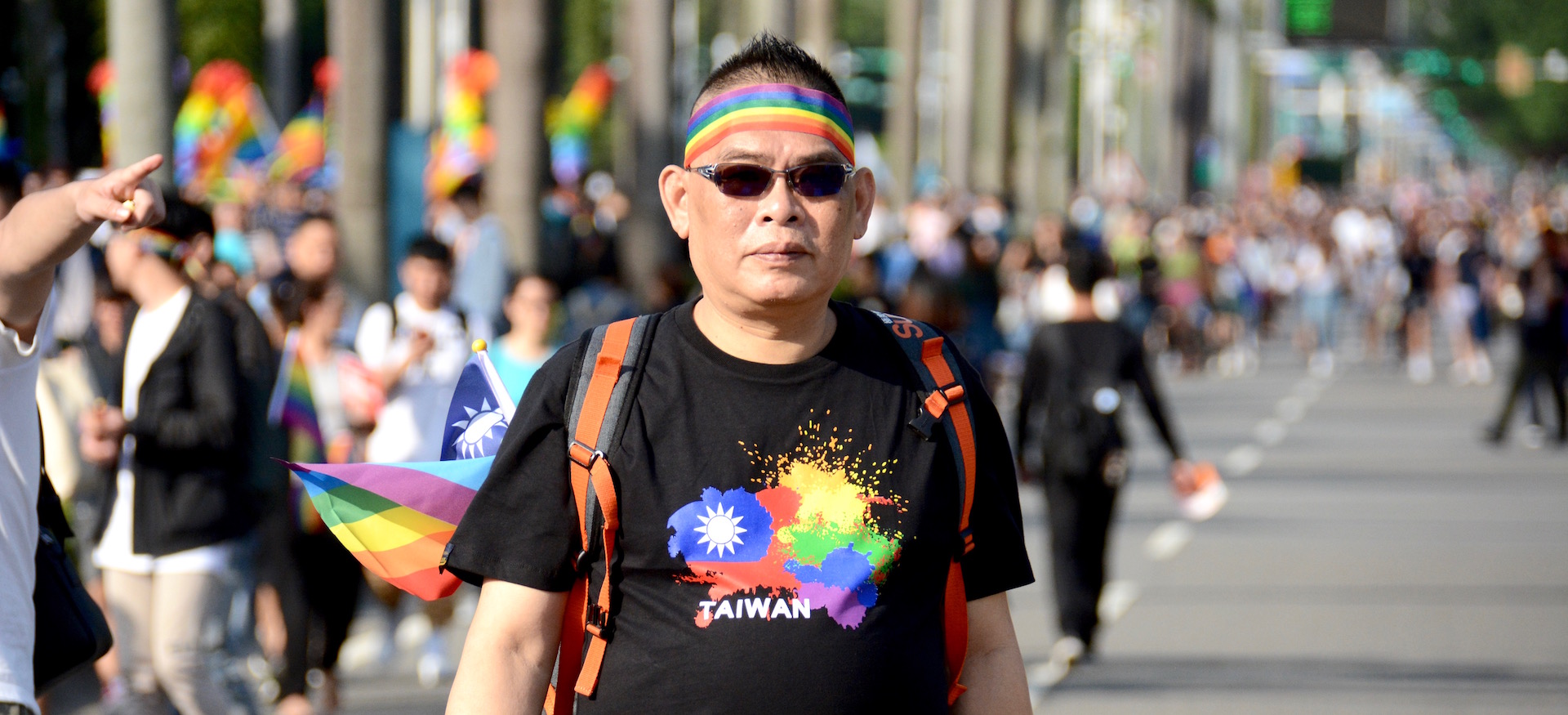Nationalistic PRC student groups abroad are becoming increasingly vocal when it comes to academic institutions inviting critics of the CCP. Whether they succeed in eroding the West’s traditions of freedom of expression will be contingent on how universities respond.
Imagine a group of foreign students at, say, Fudan University in Shanghai or Peking University in Beijing organizing a campaign to prevent a former Chinese official or academic known for his pro-regime views on Tibet or Xinjiang or Taiwan from giving a lecture at the university. Worse, a foreign embassy in Beijing or consulate in Shanghai were in contact with the group of students and compelled them to threaten the university because foreign officials had “serious concerns” about the event and the ideology of the invited speaker.
It’s not difficult to imagine what the consequences would be for those students in China, and that is why the scenario above is, under the prevailing circumstances, unimaginable.
When it comes to foreign students, however, the Chinese government — and Chinese students themselves — do not think along the lines of academic reciprocity. Over the years, several incidents have been reported in which students from the People’s Republic of China (PRC) abroad intimidated and threatened students from territories claimed by China. On some occasions, the threats against students who were being bullied by Chinese students were such that school administrators had to involve themselves and take remedial action.
In a few cases Chinese groups, instigated by or liaising with Chinese officials in the country in question, have also organized campaigns to prevent an academic institution from inviting certain speakers who are deemed “unacceptable” by the Chinese Communist Party (CCP).
Durham and Anastasia Lin
The most recent example occurred at Durham University in the U.K., where the PRC Embassy in London was reportedly in contact with a student debating society at the university to raise concerns about Anastasia Lin, a former Miss World Canada and a fierce critic of the CCP. An embassy official is said to have told the student group that inviting Lin could “harm” relations between China and the UK.
Chinese students at Durham, who are said to have first informed the PRC Embassy, also filed a complaint with the student organization, which is run independently from the university, and said that inviting Lin, a Falun Gong practitioner, was in “violation of the belief and feelings of Chinese students.”
In an e-mailed letter, a representative of the Durham University Chinese Students and Scholars Association said Lin “has been banned by the Chinese government for her human rights advocacy.” The Chinese government regards the Falun Gong as a dangerous sect.

The China-born and CCP critic Anastasia Lin (Anastasia Lin Facebook page).
“Our members find both the topic and the guest they invited a violation of the belief and feelings of Chinese students,” said the letter, which was also sent to university officials. “Anastasia Lin has been banned by the Chinese government and she is obviously not an appropriate person to be invited to debate in a topic like this, which put China in a position to be discriminated.”
Meanwhile, the embassy official said the Chinese students were “not comfortable about Lin because she’s not friendly to the Chinese government.”
Tom Harwood, president of the Durham Union debating society, said the group had received several complaints from PRC students at Durham, including a few who likened Lin to an Islamic State terrorist.
Despite efforts by Chinese students to block access to the venue, the debate went on as planned, and Lin was able to participate.
UCSD and the Dalai Lama
Across the Atlantic in San Diego, Chinese students protested against the University of California, San Diego’s (UCSD) announcing on Feb. 2 that it would invite the Tibetan spiritual leader the Dalai Lama to give a keynote speech at a commencement ceremony in June. The reaction reportedly came mere hours after the notice, and here again the Chinese Students and Scholars Association (CSSA) is said to have alerted the PRC Consulate. The organization denies it has any ties to the Chinese government.
“If the university insists on acting unilaterally and inviting the Dalai Lama to give a speech at the graduation ceremony, our association vows to take further measures to firmly resist the university’s unreasonable behavior,” the CSSA warned, adding that the invitation of a man who seeks to “divide the motherland” had “deeply hurt the feelings of Chinese students and scholars.”
Writing in the UCSD Guardian newspaper, Chinese student Wang Ruixuan argued that, “The main reason why many Chinese students are upset is that our university shows little consideration about cultural respect, as he is a politically sensitive person in China.”

Tibetan spiritual leader the Dalai Lama meets former U.S. president Obama in this undated photo.
On social media, some Chinese students wrote that the invitation went against “diversity” and “political correctness,” while others contended it was “hypocritical” to invite an “oppressive” figure like the Dalai Lama, Quartz reported. Forgetting that they are foreign guests in the country, many also seemed to argue that their protests were comparable to those targeting President Donald Trump across the United States.
In an odd equating of culture and politics, the CCP-run People’s Daily wrote on Feb. 16 that “Many Chinese students feel their culture should be respected too, even if many Americans are biased against China.”
The CSSA reportedly does not intend to ask the UCSD chancellor to disinvite the Dalai Lama but will request that the chancellor “send out statements that clarify the content of Dalai Lama’s speech,” “make sure his speech has nothing to do with politics,” and “stop using words like ‘spiritual leader’ or ‘exile’” to describe the Dalai Lama. In other words, they are asking the university to censor the Dalai Lama.
UO and Taiwan’s Andrew Yang
In 2015, the Chinese embassy in Canada reportedly mobilized protesters against a talk at the University of Ottawa (UO) by Andrew Yang, a former minister of national defense and adviser to president Ma Ying-jeou at the time. The university was bombarded by e-mails and phone calls “at all levels of the UO administration,” according to a source at the university. Chinese officials ostensibly feared that Yang’s talk, which focused on the 70th anniversary of Japan’s defeat in World War II, was a veiled attempt to promote the Republic of China, Taiwan’s official name.
Though we cannot conclude from those isolated incidents that the tens of thousands of PRC students abroad agree with this type of activism in foreign lands, there nevertheless are worrying indications that such behavior is becoming more frequent, at least among those whose exposure to Western liberal democracy hasn’t, as had been hoped, subdued their nationalistic fervor and attachment to the PRC’s territorial claims. As long as the more moderate Chinese students abroad do not intervene on the side of free speech, the more radical among them will continue to give the entire body of students a reputation for bullying and excess.
According to the Hong Kong based Initium, rumors have also been circulating among Chinese students abroad that the PRC might refuse to recognize degrees obtained from universities that have invited the Dalai Lama. The rumors emerged after the PRC’s Ministry of Education allegedly removed the University of Calgary from its list of recommended universities after it awarded the Dalai Lama an honorary doctorate of law in 2009. Although there is no sign that a policy to that effect has been implemented by China’s MOE, the rumors could nevertheless trigger self-preservation reflexes among Chinese students who do not know any better and thereby compel them to take action whenever guests who are deemed unpalatable by Chinese authorities are invited to their universities.
It’s one thing for Chinese students to express their views, however loudly, at various forums in the West (and this should be encouraged and protected). It’s another one altogether when they take action, often in cooperation with their government, to silence or exclude people who have different opinions.
‘Conditioning’ the West
Although academic institutions in the West have so far refused to cave in to this kind of pressure and restated their commitment to free expression, the long-term impact on universities abroad could eventually be felt in the form of avoidance. If, as seems to be increasingly the case, universities face a storm of protests every time they invite “controversial” figures who are known critics of the CCP and the PRC’s territorial ambitions, they could over time decide that such invitations are not worth all the trouble and self-censor by choosing to invite individuals who are silent on China or palatable to the CCP and its young ambassadors abroad.
By dint of repetition, nationalistic Chinese students could accomplish what the PRC’s diplomatic missions have done at the political level: condition Western authorities to adopt a policy of risk-avoidance on issues that are regarded as “controversial” by the CCP — Tibet, Xinjiang, Hong Kong, human rights … and Taiwan.
You might also like
More from China
A Few Thoughts on the Meng-Spavor-Kovrig Exchange
It is hard not to see this weekend’s developments as a victory for China and the creation of a world …
In Memoriam: Lee Teng-Hui and the Democracy That He Built
The former president of Taiwan is the incontestable refutation of the belief that history is merely an impersonal force, that …
The Making of ‘Insidious Power: How China Undermines Global Democracy’
A new book released on July 30 takes a close look at the agencies and mechanisms of CCP 'sharp power' …









